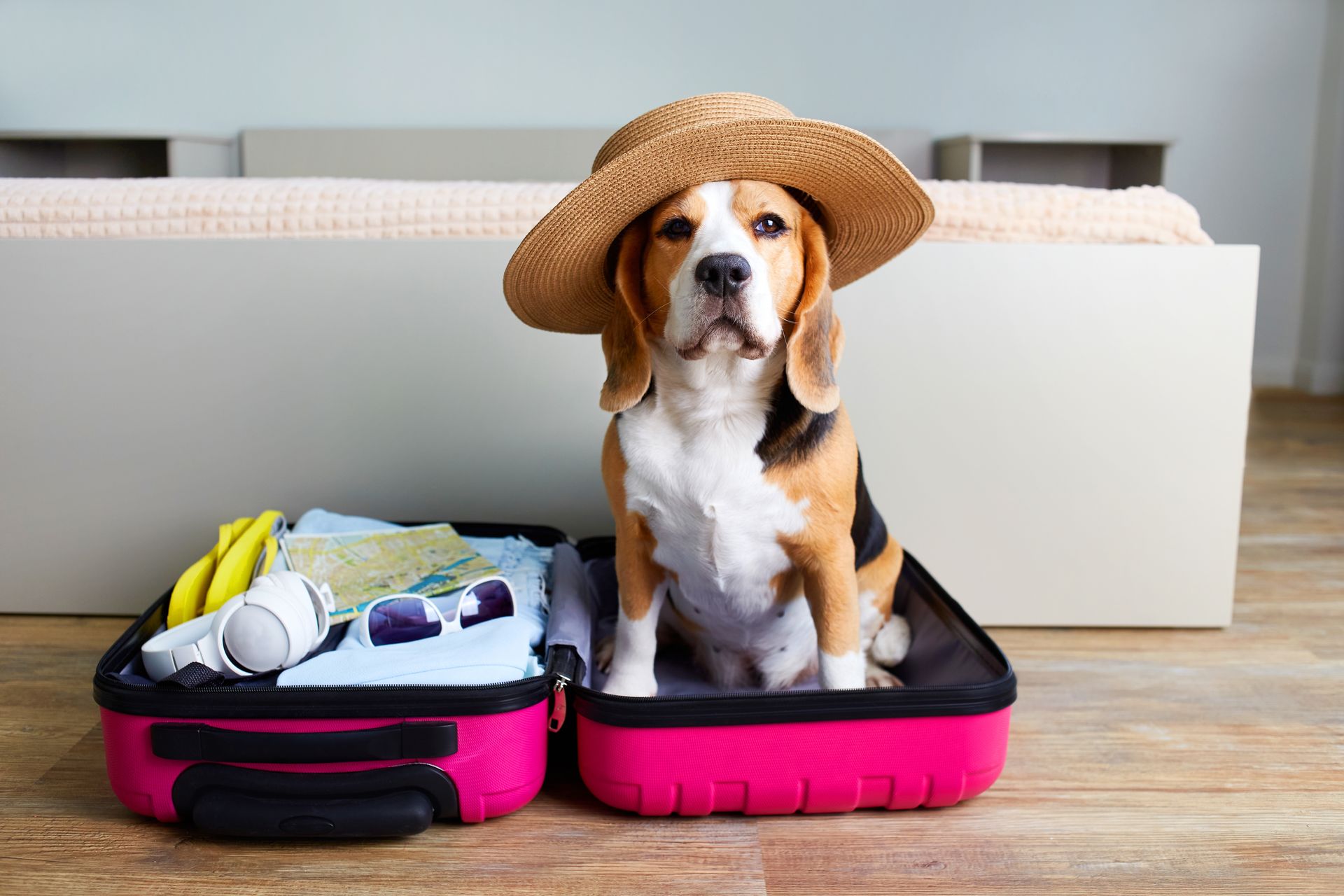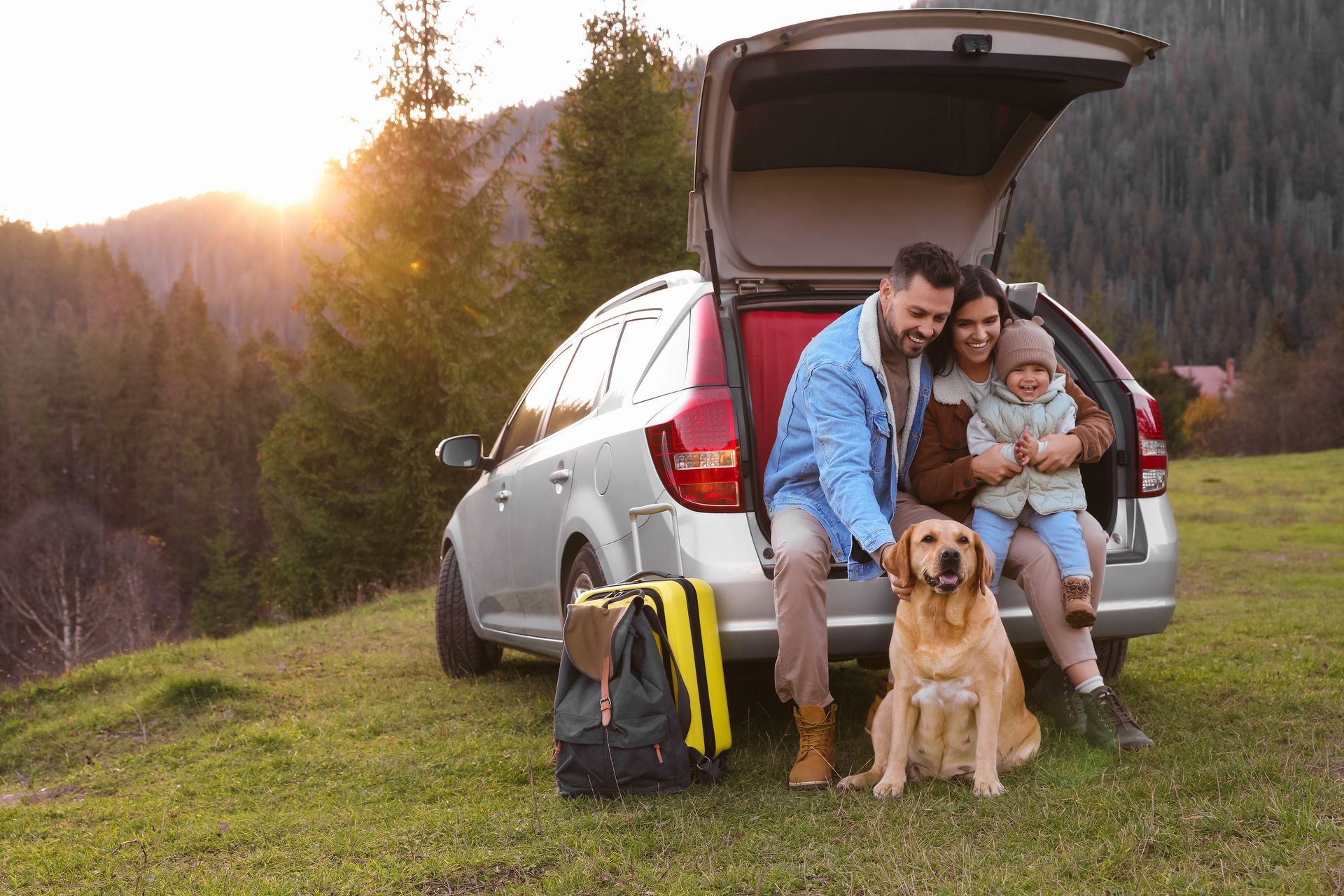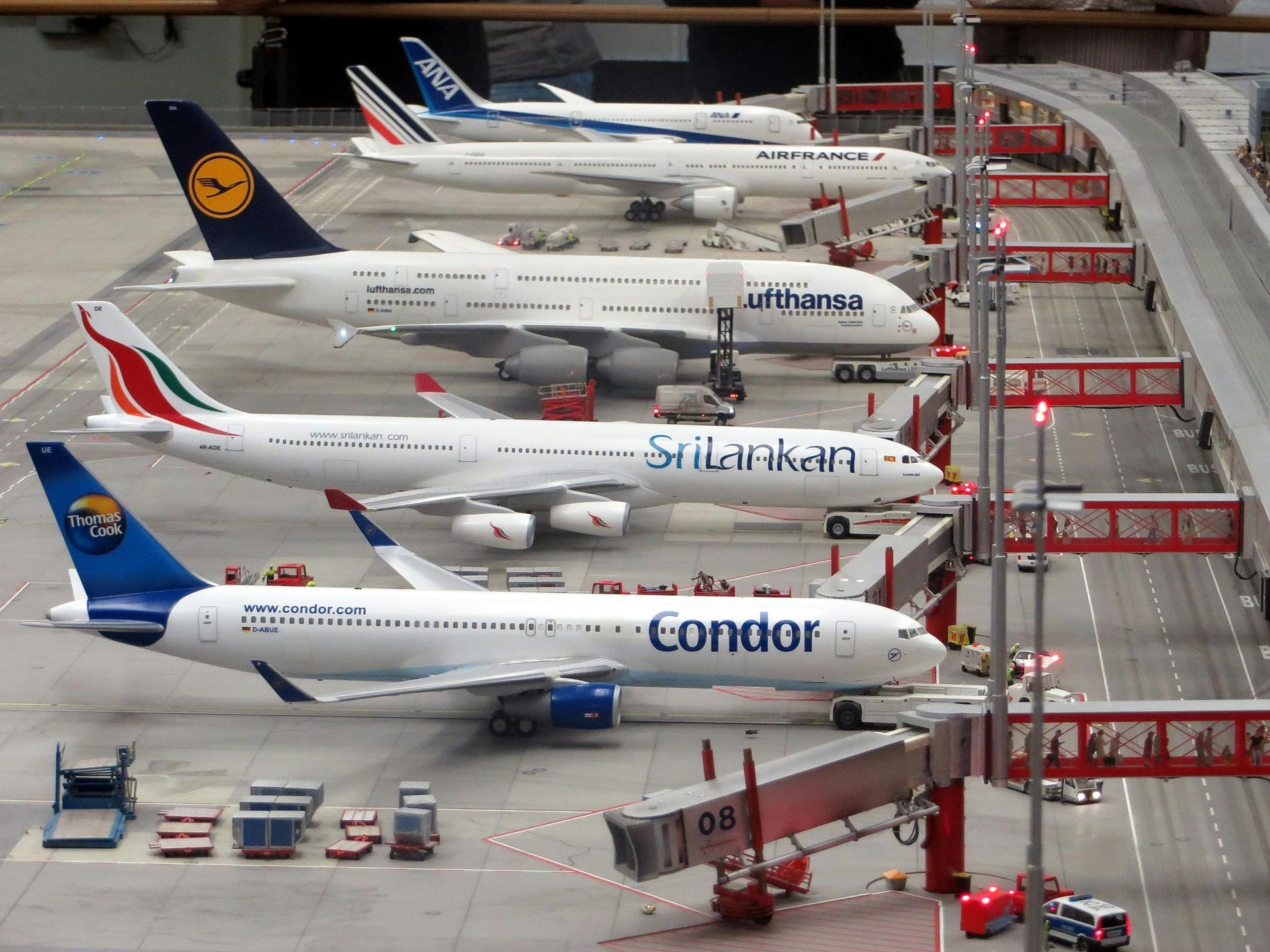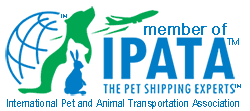
Relocating as part of a military PCS (Permanent Change of Station) move comes with enough stress—shipping your beloved pet shouldn’t add to it. At Continental Pet Relocation, we proudly support our military families by offering reliable, compassionate, and compliant pet transportation services tailored specifically for PCS moves across the U.S. and worldwide. Whether you’re moving stateside or overseas, our expert team ensures your furry family member arrives safely and comfortably at your next duty station. Why Military Families Trust Continental Pet Relocation With years of experience navigating the complexities of military pet shipping, we understand the unique challenges service members face—tight timelines, last-minute orders, and strict travel regulations. Our dedicated team works directly with military personnel and their families to coordinate door-to-door pet relocation services, keeping your PCS move smooth and stress-free. How We Support You During Your PCS Move 1. Customized Pet Travel Plans: We create detailed, personalized travel plans that consider your pet’s breed, age, health, and destination—whether it’s Germany, Japan, Hawaii, or another military base around the world. 2. Compliance with International and Military Base Regulations: From USDA paperwork to quarantine requirements and breed restrictions, we ensure your pet meets all entry requirements for both domestic and international bases. 3. Military Discounts & Priority Scheduling: We recognize and appreciate the sacrifice of military families, which is why we offer special military rates and priority scheduling for PCS-related moves. 4. Safe and Comfortable Travel: Your pet’s safety is our top priority. We work with trusted airlines, provide climate-controlled travel options, and ensure every aspect of the journey is designed for comfort and care. 5. Peace of Mind Every Step of the Way: We provide real-time updates, clear communication, and direct access to your relocation specialist from pickup to delivery. Overseas PCS? No Problem. Moving to an overseas base can be especially challenging with pets. Certain countries like Japan, South Korea, and the UK have strict animal import rules and extended timelines for documentation. Our team stays up to date with all current regulations, so you don’t have to. We also assist with: Microchip and vaccination compliance Health certificates and endorsements Quarantine reservations (if required) Airline booking and crate preparation Customs clearance and import documentation Planning Ahead Is Key PCS orders often come with little notice, so it’s crucial to begin the pet shipping process as soon as possible. Many destinations require months of preparation, including rabies titer tests, so early planning ensures a smooth transition for your pet. If you’re unsure where to start, our team will guide you through every step—from the initial consultation to arrival at your new home. Contact Continental Pet Relocation for Military Pet Shipping At Continental Pet Relocation, we’re proud to serve those who serve. Whether your PCS orders take you across the country or around the world, we’re here to make your pet’s journey as easy and worry-free as possible.

Traveling internationally with your pet is a significant undertaking that requires meticulous planning and attention to detail. At Continental Pet Relocation, we specialize in streamlining this complex process, ensuring a safe and stress-free journey for your beloved companion. 1. Understand Destination Country Requirements Each country has specific regulations for importing pets, including vaccination mandates, quarantine periods, and documentation. For instance, countries like Australia and New Zealand have stringent quarantine requirements, while others may have more lenient policies. Key Steps: Research the destination country's pet import regulations well in advance. Identify required vaccinations, tests, and documentation. Determine if quarantine is necessary and the duration. 2. Schedule a Veterinary Check-Up A comprehensive health check is crucial to ensure your pet is fit for travel. Most countries require a health certificate issued by a licensed veterinarian within a specific timeframe before departure. Recommendations: Ensure your pet is up-to-date on vaccinations, including rabies. Obtain a health certificate and any additional required documentation. Discuss any health concerns or travel-related stress with your vet. 3. Microchip Your Pet Many countries mandate that pets be microchipped with an ISO 11784/11785 compliant chip for identification purposes. Action Items: Have your pet microchipped if not already done. Ensure the microchip is registered with current contact information. 4. Acclimate Your Pet to the Travel Crate Introducing your pet to the travel crate well before the journey can reduce anxiety and ensure comfort during transit. Tips: Choose an airline-approved crate that allows your pet to stand, turn, and lie down comfortably. Place familiar items like a favorite blanket or toy inside the crate. Encourage your pet to spend time in the crate daily leading up to the trip. 5. Prepare Necessary Documentation Proper documentation is essential for international pet travel. Missing or incorrect paperwork can lead to delays or denied entry. Essential Documents: Health certificate issued by a licensed veterinarian. Vaccination records, including rabies certificate. Import permits if required by the destination country. Microchip registration details. 6. Choose the Right Travel Option Depending on your pet's size and the airline's policies, your pet may travel in-cabin, as checked baggage, or as cargo. Considerations: In-cabin travel is typically limited to small pets. Cargo travel is common for larger pets and is designed to ensure their safety and comfort. Consult with the airline and a pet relocation specialist to determine the best option. 7. Avoid Sedation Sedating pets for air travel is generally discouraged due to potential health risks. Sedatives can affect your pet's ability to regulate body temperature and maintain balance. Alternatives: Use natural calming aids or pheromone sprays. Ensure your pet is comfortable and familiar with the travel crate. Consult your veterinarian for safe anxiety-reducing strategies. 8. Plan for Arrival Upon reaching your destination, it's important to help your pet adjust to the new environment. Steps: Set up a comfortable space with familiar items. Maintain your pet's routine as much as possible. Schedule a follow-up visit with a local veterinarian. 9. Partner with a Professional Pet Relocation Service Navigating international pet travel regulations can be complex. Partnering with an experienced pet relocation service like Continental Pet Relocation can simplify the process. Benefits: Expertise in international pet travel requirements. Assistance with documentation and logistics. Peace of mind knowing your pet's journey is professionally managed. Conclusion Preparing your pet for international travel involves careful planning and attention to detail. By understanding destination requirements, ensuring proper health checks, acclimating your pet to travel conditions, and partnering with professionals, you can ensure a safe and comfortable journey for your furry friend. For personalized assistance and expert guidance, contact Continental Pet Relocation to make your pet's international move seamless and stress-free.

Moving is already a complex process, but relocating with multiple pets adds an extra layer of planning and preparation. Whether you have dogs, cats, birds, or other animals, ensuring their safety and comfort is essential. At Continental Pet Relocation, we specialize in making pet moves stress-free, no matter how many furry or feathered friends you have. Here’s how to successfully move with multiple pets while keeping them calm and secure. Plan Ahead for a Stress-Free Move When moving with multiple pets, planning is key. Start preparing weeks in advance to avoid last-minute stress. Some important steps include: Researching pet-friendly travel options Ensuring all pets have up-to-date vaccinations and health certificates Checking pet relocation regulations for your destination Arrange for professional pet transport services A well-thought-out plan helps prevent travel complications and ensures a smoother transition for your pets. Keep Pets on Their Regular Routine Animals thrive on routine, and sudden changes can cause anxiety. Try to: Feed them at the usual times Stick to their regular exercise schedule Maintain normal sleeping arrangements as much as possible Familiarity provides comfort, reducing stress during the moving process. Use Proper Travel Crates and Carriers Each pet should have a secure, well-ventilated carrier or crate suited to their size and needs. Make sure: Crates are airline-approved if flying Carriers are large enough for pets to move comfortably Bedding and familiar items are included to ease anxiety Label all crates with your contact information and your pet’s details in case of an emergency. Keep Pets Separated to Reduce Stress If you have multiple pets, consider separating them during travel to minimize stress and potential conflicts. Some pets may get anxious or agitated when confined together, especially in unfamiliar situations. For long-distance moves, consider hiring professional pet transport services to ensure each pet travels comfortably and safely. Prepare a Pet Essentials Kit Having a pet essentials kit ready will make the move smoother. Pack: Food and water for the journey Medications and first-aid supplies Leashes, harnesses, and waste bags Favorite toys or blankets for comfort This ensures that your pets have everything they need during travel and the first few days in their new home. Introduce Pets to Their New Home Gradually Once you arrive at your new home, give your pets time to adjust. Set up a quiet, designated area with their food, water, and bedding before letting them explore. Allow them to familiarize themselves with one room at a time, especially if you have multiple pets that need space to settle in. Work with a Trusted Pet Relocation Company Handling multiple pets during a move can be overwhelming. A professional pet relocation company like Continental Pet Relocation can manage the logistics, ensuring all your pets arrive safely and comfortably. From paperwork and health certificates to safe transport solutions, we take the stress out of moving with pets. Make Your Multi-Pet Move Easy with Continental Pet Relocation Moving with multiple pets doesn’t have to be complicated. With the right preparation and expert assistance, you can ensure a smooth and stress-free relocation for all your pets. Contact Continental Pet Relocation today for a personalized consultation and let us help make your pet move a seamless experience.

In today's globalized world, relocating with pets has become increasingly common, leading to a surge in demand for reliable pet transportation services. Among the top-searched companies in this field is Continental Pet Relocation, renowned for its comprehensive and compassionate approach to pet shipping. A Legacy of Trust and Care Founded in 2000 by Heather Blas, Continental Pet Relocation began as Charlotte Pet Services. Heather's lifelong passion for animals and her experience as a military family member highlighted the need for expert pet travel services. This inspired her to expand the company into the international pet relocation industry. Despite its growth, the company remains a family-operated business, emphasizing personalized service and meticulous attention to detail. Comprehensive Services Tailored to Your Needs Continental Pet Relocation offers a wide array of services designed to ensure a seamless experience for both pets and their owners: International Pet Shipping: Navigating the complexities of international pet travel, including documentation, transportation, and regulatory compliance, to ensure pets reach their new homes safely and stress-free. Document Services: Streamlining the paperwork process by efficiently handling import permits, health certificates, and other necessary documentation, allowing owners to focus on their pets' smooth relocation. Military Pet Shipping: Providing specialized services tailored to the unique needs of military families during Permanent Change of Station (PCS) orders and overseas deployments, ensuring seamless relocation for furry companions. Commitment to Safety and Compliance As certified USDA pet movers, Continental Pet Relocation adheres to procedures and standards that meet or exceed the Animal Welfare Act specifications and the International Air Transport Association (IATA) guidelines regarding the shipment of live animals. This commitment ensures that pets are transported safely and comfortably, with their well-being as the top priority. Personalized Approach and Exceptional Communication Understanding that each pet relocation is unique, the company offers a personal approach with step-by-step guidance and open communication throughout the entire process. From the initial consultation to the final delivery, their team is dedicated to providing support and ensuring a smooth transition for pets and their owners. Client Testimonials and Reputation The company's dedication to excellence is reflected in numerous positive client testimonials, highlighting their professionalism, compassion, and reliability. Clients consistently express satisfaction with the seamless and stress-free relocation experiences facilitated by Continental Pet Relocation. Community Engagement and Charitable Contributions Demonstrating a commitment to the broader community, Continental Pet Relocation donates a portion of their proceeds to various charitable organizations chosen by their clients. This philanthropic approach underscores their dedication not only to their clients but also to animal welfare and support for military families. Navigating the Complexities of Pet Relocation Relocating pets, especially internationally, involves navigating intricate country-specific import requirements, which vary based on species, breed, and age. Continental Pet Relocation stays updated on evolving airline and country regulations to ensure compliance for each pet. Their logistics cover meeting IATA standards, including approved travel crates and minimum connection times, ensuring that every aspect of the journey is meticulously planned. Expert Team Dedicated to Pet Welfare The team at Continental Pet Relocation comprises Pet Travel Consultants, Pet Handlers, and Veterinarians, all working collaboratively to ensure the safe transport of pets worldwide. Their combined expertise guarantees that pets receive the highest level of care and attention throughout the relocation process. Conclusion Continental Pet Relocation's prominence among top pet shipping searches is a testament to their unwavering commitment to safety, personalized service, and comprehensive care. Their dedication to facilitating stress-free relocations for pets and their owners, coupled with their community engagement, positions them as a trusted leader in the pet relocation industry. For those seeking a reliable partner in pet transportation, Continental Pet Relocation offers expertise and compassion, ensuring that every pet's journey is handled with the utmost care.

At Continental Pet Relocation, we understand that your pets are part of your family, and ensuring their safe and comfortable travel is our top priority. When it comes to international pet shipping, partnering with the right airlines can make all the difference in ensuring your furry companions are transported with care. That’s why we work with some of the most trusted and pet-friendly airlines worldwide, offering specialized services tailored to meet the needs of pet owners. Here’s a look at the top airlines we work with to make pet relocation as smooth as possible: 1. Lufthansa Lufthansa is known for its excellent pet transportation services and is a go-to option for international pet shipping. With their Animal Lounge at Frankfurt Airport, Lufthansa goes above and beyond in providing a safe and comfortable environment for your pets during their travels. This airline has dedicated facilities for pets, offering climate-controlled conditions, experienced staff, and seamless procedures to ensure your pet's journey is stress-free. Why choose Lufthansa for pet shipping? Specialized Animal Lounge Climate-controlled cabins and cargo Experienced handlers Global pet-friendly routes 2. KLM Royal Dutch Airlines KLM is one of the most popular airlines for pet relocation, offering a variety of options for transporting pets, whether in the cabin or as cargo. With their Pet Travel Scheme, KLM ensures that your pets receive the utmost care, and their dedicated pet service team monitors your pets from departure to arrival. What sets KLM apart for pet relocation? Pet-friendly policies for cabin and cargo transport Expertise in handling pets across international borders Direct communication with pet owners during the journey 3. Air France Air France offers tailored services for pet shipping, ensuring the comfort and safety of animals traveling either in the cabin, as checked baggage, or in the cargo hold. Their La Compagnie service is specifically designed for pets, and their staff is trained to handle animals with care. Benefits of using Air France for pet relocation: Multiple pet travel options (cabin, checked baggage, cargo) Special care and attention for pets Dedicated teams to ensure smooth transport 4. American Airlines For pet owners looking to relocate their furry companions within the United States or internationally, American Airlines offers reliable and safe pet travel services. Their American PetEmbark program ensures that pets are transported in climate-controlled environments with trained personnel overseeing the journey from start to finish. Why American Airlines is a great choice for pet shipping: Wide range of domestic and international routes PetEmbark program for dedicated pet care Climate-controlled cargo holds and onboard pet safety 5. British Airways British Airways is renowned for its high-quality pet transportation services, with their PETS program designed to provide seamless international pet relocation. The airline offers climate-controlled cargo holds, experienced handlers, and smooth customs processes to make pet shipping hassle-free. Advantages of flying with British Airways for pet relocation: Extensive international route network PETS program designed for safe and comfortable pet travel Support through customs and quarantine procedures Why Choose Continental Pet Relocation? At Continental Pet Relocation, we have strong partnerships with these leading airlines to offer you the most reliable and safe pet shipping services. Our experience in coordinating with these airlines means that your pets are in good hands throughout the entire process. We work closely with each airline to ensure that your pets receive the best care, no matter the destination. Safe, Comfortable, and Hassle-Free Pet Relocation Our team of experts is dedicated to ensuring that your pets travel comfortably and safely, adhering to the strict guidelines of the airlines we work with. From handling the necessary paperwork to providing guidance on crate requirements, we take care of every detail so that you can focus on preparing for your move. For more information on how we can assist with your pet’s relocation, or to get a quote, contact Continental Pet Relocation today!

Moving to a new country with your dog is an exciting adventure, but it comes with unique challenges—especially when it comes to understanding the CDC's dog import regulations. At Continental Pet Relocation, we prioritize the safety and well-being of your pets during their relocation. To help you navigate the process smoothly, we’ve outlined the key CDC guidelines to ensure a hassle-free journey for your furry friend. What Are CDC Dog Import Regulations? The Centers for Disease Control and Prevention (CDC) sets dog import regulations to prevent the spread of diseases like rabies into the United States. These rules apply to dogs being brought into the country, whether temporarily or permanently, and are essential for the safety of both your pet and the public. CDC Regulations for Dog Importation 1. Rabies Vaccination Requirements One of the primary CDC regulations for dog importation involves rabies vaccination. Dogs coming from countries with a high risk of rabies must be fully vaccinated and have a valid rabies vaccination certificate. The vaccine must have been administered at least 30 days before the dog's arrival in the U.S. 2. Rabies Titer Test In some cases, dogs coming from high-risk rabies countries may also require a rabies titer test. This test checks the level of rabies antibodies in your dog’s bloodstream, ensuring they are adequately protected against the virus. 3. Health Certification Dogs imported into the U.S. must have a health certificate issued by a licensed veterinarian. This document confirms that your dog is healthy, free of infectious diseases, and fit to travel. Depending on your destination and airline, additional health certifications may also be required. 4. Quarantine Requirements While the U.S. does not generally require quarantine for imported dogs, there are exceptions. Dogs that do not meet the CDC’s requirements may be denied entry, quarantined, or sent back to their country of origin. To avoid this, it’s essential to ensure that all documentation and vaccination requirements are met before travel. Countries With High Rabies Risk If you're relocating from a country the CDC identifies as high risk for rabies, additional steps are necessary. Currently, the CDC has a list of over 100 countries that are considered high-risk, including countries in Africa, Asia, and parts of Europe. Checking the CDC’s list of high-risk countries is vital before planning your pet’s relocation to ensure you follow the correct protocols. How Continental Pet Relocation Can Help At Continental Pet Relocation, we understand that the CDC’s dog import regulations can be overwhelming, especially when you’re in the middle of planning an international move. Our experienced team will guide you through the entire process, from gathering the necessary documentation to ensuring your dog meets all vaccination requirements. We work closely with trusted veterinarians, airlines, and government agencies to ensure your pet's relocation is stress-free. Whether you’re moving to the U.S. from a low-risk or high-risk rabies country, we tailor our services to meet your specific needs, ensuring your dog’s safety and comfort throughout the journey. Final Thoughts Following CDC dog import regulations is crucial when relocating your pet to the U.S. Failure to comply can result in delays, quarantine, or even denial of entry for your dog. At Continental Pet Relocation, we’re here to make the process as smooth as possible for you and your furry family member. For more information on CDC dog import regulations or to start planning your pet’s relocation, contact us today. We’re dedicated to ensuring your pet’s safe and successful journey to your new home. Resources: https://www.cdc.gov/importation/dogs/index.html https://www.usatoday.com/story/travel/news/2024/07/31/cdc-rules-dog-travel/74510559007/


